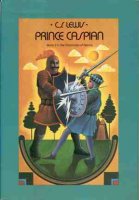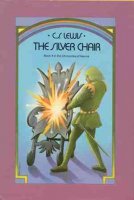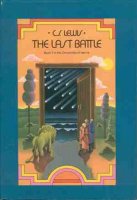It's time to reprise a favorite G. K. Chesterton quote.
Sex is an instinct that produces an institution; and it is positive and not negative, noble and not base, creative and not destructive, because it produces this institution. That institution is the family; a small state or commonwealth which has hundreds of aspects, when it is once started, that are not sexual at all. It includes worship, justice, festivity, decoration, instruction, comradeship, repose. Sex is the gate of that house; and romantic and imaginative people naturally like looking through a gateway. But the house is very much larger than the gate. There are indeed a certain number of people who like to hang about the gate and never get any further.
— G.K.'s Weekly, January 29, 1928
Permalink | Read 1148 times | Comments (0)
Category Random Musings: [first] [previous] [next] [newest]
 Item: Football player Colin Kaepernick kneels before the American flag during the National Anthem as a protest against racism in America, and kicks up a storm of protest and counter-protest. He is accused of being disrespectful to the flag and the country.
Item: Football player Colin Kaepernick kneels before the American flag during the National Anthem as a protest against racism in America, and kicks up a storm of protest and counter-protest. He is accused of being disrespectful to the flag and the country.
Item: Nike, the shoe company, decides to make an Independence Day-inspired line of sneakers featuring the "Betsy Ross" flag, then reneges when Kaepernick objects, saying that the flag is a symbol of racism.
Item: Another shoe company takes up the slack—and I'd say the profits, except those are apparently going to a veterans' charity—and starts producing shoes with the Betsy Ross flag design. It is cheered by those who are offended by both Nike and Kaepernick.
Has the world gone totally mad?
No one can truly know another's thoughts, but I'm pretty sure that when Mr. Kaepernick knelt during the National Anthem he was not expressing his respect for America and her flag. I'm equally confident that the manufacturer of the new shoes sees this as a way to express love for flag and country—giving no thought to the idea that the flags thereon would soon be worn on the feet and dragged through the dirt.
I care nothing for Nike (their shoes are out of my price range) and no more for Kaepernick than is required of me by my claim to be a Christian (usually less, I'm afraid—but I can't blame him for my own fault). But it was firmly impressed on me as a child that kneeling is the ultimate gesture of respect, save only for complete prostration, and that wearing the flag as an article of clothing—let alone footwear!—is disrespect beyond the pale. I believe that attitude has the force of history behind it.
It's at this point that my inner cynic rises up and declaims, "A plague on both their houses!" How can we hope to communicate when words and symbols have inverted their meanings?
Permalink | Read 1426 times | Comments (0)
Category Random Musings: [first] [previous] [next] [newest]
 The Story of Christianity, Volume 1: The Early Church To The Dawn Of The Reformation by Justo L. Gonzalez (HarperOne, 2010)
The Story of Christianity, Volume 1: The Early Church To The Dawn Of The Reformation by Justo L. Gonzalez (HarperOne, 2010)
My list of books read this year shows June's tally to be woefully short, a mere two books. In part that shortfall is due to being on vacation with much else calling for my attention, but the primary cause was this 530-page book. I read most of it in June, but it squeaked over into July before completion.
Our rector chose this book for his six-week class in church history. I chose the Kindle version because that enabled me to begin the reading while still out of town—unfortunately we had to miss three of the six classes, and I wanted at least to keep up with the reading. It wasn't easy, because Fr. Trey set a pace that was blistering even to a bookworm like me, though perhaps not to one who has so recently been in seminary and law school.
But I more than kept up. I finished the book yesterday, and the last class isn't until mid-month. What can I say? Once I get started, it's hard to stop. And I have a new birthday book—Brother Cadfael—calling out to me.
Plus, the book is interesting. The earlier chapters are better than the later to my mind, because the closer the author gets to modern times, the more obvious his biases become. I'm wondering if the trend will continue in Volume 2.
Mind you, I don't hold against him the fact that his biases show, even if they are sometimes frustrating. How can someone write on any subject, let alone one as difficult and as sensitive as history, without leaving the imprint of his own life's experiences? Isn't that why particular people write particular books? But the experience illustrates the truth-seeker's variant of caveat emptor: Be leery of trusting single sources.
I'll spare you the collection of quotations this time, but simply share one of my strongest and most lasting impressions.
As most of my readers know, it is my habit to read through the Bible once each year. I like to switch off different versions, and currently I'm using the one called simply, The Message. I don't doubt that many people find this version useful and enlightening, but for me it combines slogging through a swamp with enduring fingernails on a blackboard, so it's taking me a while to make progress. I'm well into my second year, and still in the Old Testament. The constant grind of God sets us on the right path—we mess up badly—God gets mad and threatens to give up on us—bad things happen—God decides he loves us too much to abandon us completely—God sets us back on the right path—we mess up badly—ad infinitum, is getting really old. This theme-and-variations seems a little repetitive in any translation, but it's orders of magnitude worse in The Message.
Enter this book on church history. History in general has been a weakness of mine ever since I learned in school that one could enjoy/be good at science and math or English and history, but not both. (I know. Surely no one actually said that? But that's what I heard.) About the history of the church I know even less, hence my eagerness to take this class. Reading the book made me glad to be experiencing the Old Testament at the same time. Why?
The impression given in most churches seems to me to be that God did a lot of work through history preparing mankind for the Incarnation—the coming of Jesus—and then considered the job done, with nothing left to do till the Second Coming. That's like jumping from the Garden of Eden to the Stable at Bethlehem, without considering all the years of history and preparation in between. What learning something of church history has shown me is how similar the Anno Domini years have been to those Before Christ. It's the same old song in a different key: make a good start, mess up—sometimes disastrously—receive correction, try again, mess up again, etc. Gradually learning, clarifying, and growing in the midst of and in spite of and even because of some really bad stuff going on. Just like Old Testament Israel.
Everything changed with the birth, death, and resurrection of Jesus. And yet ... plus ça change ... people are still people. God's process of teaching, refining, clarifying, and polishing goes on. His work in and on and through his Church is just as important as his work with Israel. It is much like his work with individuals: everything indeed changes radically when one becomes a Christian, but God's work in us is far from complete.
Why do we learn so much in church about what God does in our individual lives, and what he did with Israel BC, but so little about his work with the Church AD?
Having recently emerged from a long labor, I am again amazed at how like childbirth is the creative endeavor.
The creative endeavor in question was a new book. Not that kind of book, I hasten to assure my friends and relatives who are published authors. My speciality is Shutterfly photo books—primarily for our grandchildren—with titles like The Art of Frederic Edwin Church, The Cantons of Switzerland, and Grandma and Dad-o Visit the Gambia. But if my artistic efforts are on a small scale, they are nonetheless artistic efforts, and extraordinarily like that highest of creative works of which mankind is capable, the co-creation with God of a unique human being.
As usual, this book began with nothing but a joyful idea and a due date: I had an offer for a "free" (pay only for shipping & tax) Shutterfly book with an expiration date of June 30. At that point I had no idea what the book would be about, just that it would be. The project perked along happily in the back of my mind as I occasionally thought about possibilities and laid the groundwork. Ah, the early days, when the delivery date seems so far away! I had plenty of time, and expected an easy "pregnancy."
As happens all too often, life took some unexpected turns, some good, some bad. Complications developed.
We had planned a major trip in May and June, which always plays havoc with my projects, but in this case there were two time periods in which I thought I could count on quiet time for some intense work. During our New Hampshire visit, all of the family but me were to have gone on a four-day camping trip, leaving me alone in the house to create. Later, during the Connecticut portion of our trip, we were to be there a full week before the main event, and our plans were simple: Porter—talk with his dad, work around the house, and play board games with his sister; Linda—work on this project! Almost two weeks of very little else to do? Surely I could accomplish much!
Yeah, right. First monkey wrench? Not long before the start of the trip, Porter experienced what turned out to be an intense sciatica attack. It was a miracle he was able to lie down flat for the MRI—which showed that his spine is a ticking bomb, ready to cripple him whenever the bulge hits the sciatic nerve. Despite this, we prepared for the trip in between medical necessities, and had some unexpected company (of the best kind!); in the end he was feeling well enough to want to make the trip. I wasn't so sure, but by another miracle he managed to make the long, long drive, only stopping more frequently than usual to rest and stretch. We arrived in New Hampshire only one day later than planned, and the camping trip was the following day! At that point, I felt I needed to be wherever Porter was, especially in a camping situation. We both decided to go, and it was great fun.
But there went the first writing session.
The second one was obliterated through two factors: (1) Porter's 92-year-old father became ill, and (2) we decided to bring two of our grandchildren with us when we left New Hampshire. So that week was spent on other activities—those more important than writing and those more fun. That's "fun" in the general sense—I find the creative process immensely satisfying, and yes, fun (most of the time), but not many agree.
When finally home (though not back to normal), I realized my due date was rapidly approaching and something had to be done about it. We all know that induced labors are more intense and painful than natural labors, and so it was in this case. Soon I was in my least favorite part of the book-creating process: wading through huge piles of data, making painful decision after painful decision necessary to make it all manageable. When the pain was at its worst I was ready to give up due to frustration and exhaustion. Of course, I was then in "transition," the point where laboring women are ready to jump out of windows—or defenestrate their husbands.
On to the blissful agony of the "pushing" stage, where the labor pains finally make obvious progress and the end is in sight. I had created the covers—for some reason, having the covers done makes everything else seem possible. I was on a roll. Only the necessities of life stopped me. I love this stage! The work was still tedious and painful: the process of making a photo page consists mainly in deciding what not to use, reluctantly casting aside photo after photo that just won't fit. To use another analogy, you can't make a sculpture without removing the wood or the stone, and the closer you get to the finished work, the more important and delicate each removal is. But oh the thrill as each page fell into place! Normally I'm good for nothing but sleep after nine o'clock at night. I blew past that mark, unheeding. Rarely do I work as efficiently and as effectively as I did that night, despite the lateness of the hour. Nine, ten, eleven, midnight—the hours passed and the pages slowly and steadily fell into place. It seemed nothing would stop me.
But finally, at 3:30 a.m., something did. My Shutterfly deal expired at midnight Pacific Time, and I still had four pages to go. Often, when I've barely beaten a deadline (never this late before!), once the deadline is actually past, Shutterfly will extend the offer by one more day. Not so this time, when I could have used it. By 3:30 it was clear that there was no point in pushing myself any further. I had another offer almost as good that didn't expire for another week. I went to bed at an hour very near to the time I often arise in the morning. Not since the birth of my firstborn had I worked through that much of the night.
The next day I was glad I had gone to bed, albeit for what turned out to be only a couple of hours' sleep, because there was still most of a day's worth of labor ahead of me. Of course, my sleep-deprived brain wasn't as efficient as it had been the night before! But I made it, and—after much more proofreading and editing than if I had finished the book at 2:55 the previous night—I clicked on the "Order" button and the baby was born!
And here's where the childbirth analogy breaks down. I won't actually have the book in my hands for at least a week, for one thing, and for another: with this particular book the pain is gone and the sleepless nights are done.
I chose the subject of this book for two reasons. One: I think it will bring delight to Porter's father, who could use some sunshine in his life right now. Two: since I could make it with no text, and I had plenty of appropriate photos at hand, I thought I could do the job quickly. I even thought of trying Shutterfly's feature where they take your photos and make them into a nice book for you. But I couldn't do it. I just couldn't. I have my standards, and I must tell the story myself. So be it.
Permalink | Read 1403 times | Comments (2)
Category Random Musings: [first] [previous] [next] [newest] Everyday Life: [first] [previous] [next] [newest]







The Lion, the Witch, and the Wardrobe ♦ Prince Caspian ♦ The Voyage of the "Dawn Treader" ♦ The Silver Chair ♦ The Horse and His Boy ♦ The Magician's Nephew ♦ The Last Battle by C. S. Lewis (Macmillan, 1950-1956)
I have elsewhere averred that Lewis's Narnia septet is worth reading annually. Not even the rapid growth of our grandchildren has made me more cognizant of the rapid passage of time than realizing that the last time I read these books was in 2010. That was the year I began keeping a comprehensive record of my reading; without it, I would have been certain it had been no more than a few years since my last reading. Wow.
Their turn came up recently in my C. S. Lewis retrospective, in which I'm reading his books in a rough chronological order. They have always been my favorite of his books, and my discovery of Michael Ward's Planet Narnia enhanced my admiration by an order of magnitude.
One thing I noticed this time around—thanks to my awareness of the chronology of his writing—was the salutory effect the entrance of Joy Davidman into his life appears to have had on his view of women. Lewis's attitude towards women sometimes makes me cringe, but as I've become aware of his biography, I'm amazed he wasn't a total misogynist. His beloved mother died when he was very young, and his subsequent experiences with women were not conducive to developing healthy ideas about normal family life and competent, caring females. Even his relationship with Davidman could hardly be called normal. But she was strong and intelligent, and it's hard not to conclude that the presence in his life of such a woman influenced him to give his female characters more respect as the Narnia series progressed.
That is, if you read them in publication order. I'm 100%, whole-heartedly of the belief that one should read the Narnia books in the order listed above. It is fashionable now to read them in chronological order, supposedly the order Lewis recommended. But if that truly was his recommendation, then I'm bold enough to say he was wrong, even if he is the author. The Horse and His Boy and The Magician's Nephew work very well as flashbacks in the story, much more interesting because of their non-chronological positions in the Chronicles. Scenes in The Magician's Nephew, such as the "planting" of the lamppost, would lose much of their wonder and magic for me if I had not read The Lion, the Witch, and the Wardrobe first. Similarly, I think meetin Aslan for the first time works better in Lion.
This series deserves the highest praise. It's some of the cleverest and most uplifting material I've ever read. I'm sure I would respect it even more if I had better knowledge of Dante, but reading Planet Narnia was eye-opening enough. The only thing that makes me cringe just a bit is that in two of the books the culture of the heroes is clearly modelled on England, while that of the villains is like something out of the Arabian Nights. I think this makes perfect sense for a British author writing for a largely British audience, and since the books were written in the 1950's, this obviously has nothing to do with the current political situation. But it is worth being aware of.
It's been a while since I posted in my Conservationist Living category, which is this post's primary classification, though I've assigned it to several others as well.
America is going to hell, right? Everybody says so. Including a whole lot of people who fervently believe there is no such place as hell, which is an interesting conundrum. But they all believe with equal fervor that we are going there rapidly. Believer or non-believer, left-wing or right-wing, we are convinced that we're in bad shape and on course to get much, much worse. What we disagree on is the attitudes, events, actions, and pathways that are taking us hell-ward.
Believe me, I'm not immune to such pessimism. Neither are you, so I'm going to tell you a small part of the story of Dave Anderson.
The Andersons are friends of our daughter's family, from their Pittsburgh days. Dave's success at building a good life for his family while reclaiming a worn-out strip mine and putting to good use many hundreds of tons of refuse every year was featured last month in this Pittsburgh Post-Gazette article.
I made the 45-minute drive to Echo Valley Farm this week because I wanted to meet the man who’d turned strip-mined land in northwest Beaver County into 26 grassy acres on which beef cattle thrive. Mr. Anderson had told me he revived his land by mixing hundreds of thousands of used paper cups from the Pittsburgh Marathon with manure, hay, banana peels and restaurant refuse.
You'll want to read the whole article to learn about the symbiotic relationship between the farm, needing nourisment, and both private businesses and local governments, needing waste disposal, that's a win for everyone involved.
It all works because there’s something in it for everyone. Mr. Anderson said that 14 years ago, the field over my shoulder produced 6,000 pounds of hay at the first cutting. The cutting in [the] same field last year brought 37,000 pounds.
Plus, the farm is a great place to raise kids.
I ask if it’s just the two of them and he says, no, he and his wife, Elaine, have six girls and a boy. They range in age from 10 to 24. All seven of them comprise Echo Valley, a bluegrass/gospel/Celtic band, that just played in Harrodsburg, Ky., Saturday night.
Several years ago—it was probably more than ten, though I'm finding that hard to believe—we visited the budding farm for one of their many social gatherings of food, music, and fun. Kids and animals were everywhere. The children were much younger then, of course, but they were already solid musicians. Here is a more recent video of the group.
and one of my favorites from earlier, just for fun.
Mr. Anderson, an inveterate reader who doesn’t own a TV, and who also was an air traffic manager until he retired last Friday, figured out how to turn desolate land into a lush farm that supports a family of nine with 30 head of beef cattle, six miniature donkeys, 40 laying hens, two turkeys, four guinea fowl, three geese, three ducks, two Australian cattle dogs and six pups.
Not to mention a number of cats, as I recall.
I hope this brightened your day. If America is, indeed, going to hell, people like the Andersons are pulling mightily in the other direction.
Permalink | Read 1676 times | Comments (4)
Category Politics: [first] [previous] [next] [newest] Children & Family Issues: [first] [previous] [next] [newest] Food: [first] [previous] [next] [newest] Conservationist Living: [first] [previous] [next] [newest] Inspiration: [first] [previous] [next] [newest]
 Ocean-Born Mary by Lois Lenski (J. B. Lippincott, 1939)
Ocean-Born Mary by Lois Lenski (J. B. Lippincott, 1939)
I grew up with Lois Lenski's Indian Captive, a fictionalized version of the story of Mary Jemison, captured by Indians during the French and Indian War. She remained with the Senecas all her life, and I have seen her grave in Letchworth State Park, one of our favorite spots in Western New York. It remains one of my favorite stories.
Many years later, after moving to Florida, I discovered the Newberry Award-winning Strawberry Girl, Lenski's novel about rural Florida in the early 20th century, and liked it also.
I wish Lenski's books weren't so hard to find. Recently I discovered a new one, in little Hillsboro, New Hampshire's tiny library: Ocean-Born Mary—and it's as good as the other two.
There's a reason this book is in a New Hampshire library: it is the fictionalized story of Mary Wilson Wallace, who was born on a ship that was part of the 18th century Scots-Irish immigration to New England. She grew up in New Hampshire, and her grave is in Henniker, the next town over from Hillsboro. Our New Hampshire grandchildren will want to be sure to read the Afterward, where they will find such familiar names as The Isles of Shoals and Star Island.
Warning: some spoilers below, but important for parents to read.
I loved Ocean-Born Mary. This is the world many of my ancestors lived in. Lenski has fictionalized the story and softened some of the harsh details for the juvenile audience, but there is great historical detail and it rings true. Written in 1939, it does not have 21st-century sensitivities, and modern parents may cringe at the casual references to "Negro slaves." But that was reality, and it's good for Northerners to realize what they would love to forget—that slavery was not exclusively a Southern sin. It was part of life at that time, as were smallpox and starvation, Indian attacks and British oppression.
Many modern parents may find even more objectionable the protagonist's friendship with an older man of very ill repute, and the fact that she sneaks away on several occasions to meet with him. Nothing untoward happens, and there is nothing at all romantic in the modern sense about the relationship. I've read many modern children's books that are infinitely worse in that dimension. Nonetheless, it may make modern parents queasy, which is why I'd suggest this book as a read-aloud, or that parents might at least read it themselves, first.
But I do recommend Ocean-Born Mary, highly. It's a gripping story, enjoyable to read, and I think it paints a good picture of colonial New England.
When I lamented my love/hate relationship with Penzeys Spices, one of my readers pointed me to an alternative spice source. I wasn't particularly looking for a new source at the time, having resigned myself to making do with grocery store spices except when Penzeys had a very, very special sale—which they seem to do every time Bill Penzey wants to point to a spike in sales as evidence that his customers support a particular political position.
But I checked out The Spice House and was blown away. I had not known the greater Penzeys story: It was Bill Penzey, Sr. who started the original Spice House company. His daughter took over the business, while his son, Bill Penzey, Jr., started his own spice company. Both companies have access to the old family recipes. The Spice House is smaller and more local than Penzeys, which they count to their advantage, all their spices still being prepared by hand in small batches, at their store.
The biggest difference between Penzeys and The Spice House is in politics. For all I know, the owners of the two stores share the same exact political views—or perhaps they are poles apart. I wouldn't know, because, unlike Penzeys, The Spice House makes a point of welcoming customers of all political persuasions, and keeping a very low profile themselves.
Here at The Spice House we are strictly a community of folks who like to cook; you will never get any lectures from us that include our personal agenda. We are just about the love of cooking and getting you the best possible ingredients to produce the most flavorful results!
Penzeys-quality seasonings without the side order of vituperation? I'm in!
My first order with The Spice House was just large enough to qualify for free shipping, because I'm trying to draw down my current spice stockpile, but what I've seen so far, I like very much. Here's a new blend that quickly became a favorite: Lake Shore Drive Seasoning: Gently hand mixed from salt, shallots, garlic, onion, chives, ground green peppercorns, scallions. My favorite alliums all together! I could only be happier if they had—without replacing this one—a blend that included all of the above except the salt, so I could add still more of the flavor to a dish.
I doubt The Spice House will totally replace Penzeys for me, as not all blends are available in both places. But it has certainly become the go-to store for my regular seasoning purchases.
 A Book of Narnians: The Lion, the Witch and the Others by C. S. Lewis, text compiled by James Riordan, illustrated by Pauline Baynes (HarperTrophy, 1994)
A Book of Narnians: The Lion, the Witch and the Others by C. S. Lewis, text compiled by James Riordan, illustrated by Pauline Baynes (HarperTrophy, 1994)
When I read a book, it's the words I care about. I confess that I rarely look at illustrations; even when reading picture books to our grandchildren I mostly ignore the pictures. (You can guess how I feel about the "wordless books" that were popular for children at one time.) My view is that if you can't tell a story without illustrations, you're not really telling the story. So much for "a picture is worth a thousand words," at least as far as my reading habits are concerned.
On the other hand, in A Book of Narnians the illustrations are the book, and as far as I'm concerned are the whole worth of the book. Sadly, James Riordan's descriptions of the various Narnian characters, even though taken largely from the books themselves, make me cringe. I'm not certain why, except that—unlike Lewis' words in their original context—they feel condescending, as if someone decided that because this is a picture book, it should be written on a childish level. That's an attitude no intelligent and self-respecting child would put up with.
But it doesn't really matter. The star of the show here is Pauline Baynes' paintings, full color and worth taking time to study. Included as well, to my everlasting delight, is a reproduction of the original published map of Narnia, a poster of which hung for years, alongside a similar map of J. R. R. Tolkien's Middle Earth, in whatever house or dorm room I happened to inhabit.
(The map of Narnia now resides with our daughter, who takes better care of it than I, alas, ever did. I'm sorry to say I don't know what happened to the Middle Earth map, which was just as delightful.)
On November 22, 1963, John F. Kennedy died. I vividly remember a television commentor remarking that 60 people had also died that day in a horrific nursing home fire. In God's eyes, he admitted, those deaths were equally important, "but we are not God."
Death is all around us, every day. Some deaths move us more than others. To some extent, that's as it should be; if your own mother's death isn't more significant to you than the death of a random woman in South Dakota, there's something wrong with either you or your mother. I get that.
What I don't get is what moves the general media, and thus (sadly) the general population, to chose to highlight, amplify, and honor certain deaths for which most people have no personal connection. One child dies in a hurricane, and it's played over and over on the news. More than a dozen children die weekly in auto accidents, and rarely get airplay. Workplace or school shootings arouse great fear and anger, but gang-related violence is mostly ignored. The death of Travon Martin brought intense media attention from all over the world to Central Florida; the concurrent brutal death-and-burning of two young men on a bike trail nearby was all but ignored even by local media.
And then there are ostensibly minor events—like the Sandy Hook shooting, and Orlando's Pulse nightclub attack—which have taken on iconic status, with commemorations that amount to the feast days of some American secular religion.
I do understand that. Human nature, even that of hard-boiled atheists, needs a form of religion, and anything at all can spring into the vacuum created when more traditional forms of faith are abandoned. What I don't understand is why churches buy into it. I'm not even sure why churches celebrate Mother's Day, Veteran's Day, and other secular holidays—much less Super Bowl Sunday, which, no kidding, has been honored at some churches I've been in.
This is no commentary on what my own particular church does or does not do. I am on vacation in a place where the church celebrations are Pentecost and Trinity Sunday; I can't speak for what's going on back home. But if it's like previous years, churches all over Orlando will be talking about the Pulse attack, and tolling their bells 49 times. I don't think that's necessary, or even important. But for those churches who do choose to join in the secular remembrance, I have one plea:
Ring your bell 50 times.
You will hear again and again that 49 people died in the Pulse shooting. But the true number is 50. Any church calling itself by the Name of Christ must acknowledge that the 50th death—that of the attacker—is just as important, and just as tragic, as the other 49. As I wrote a year ago,
The natural way is not the Christian way. It is very, very clear that we are to love our enemies, which at the very least means mourning the violent, if necessary, death of this angry and unstable young man. He, as much as any of the other victims of this tragedy, was someone's son, someone's brother, someone's father, a human being, created in the image of God—no matter how distorted that image had become.
As that commentator acknowledged more than 50 years ago, we are not God. But if we are Christians, we should try to be more like him, and less like the world.
Permalink | Read 1542 times | Comments (1)
Category Random Musings: [first] [previous] [next] [newest]
Variations on this article have been making the rounds on Facebook recently: "Should Arabic numerals be taught in schools? Most Americans say no." Briefly,
CivicScience, whose mission is to power the world’s opinions and bring them to the decision makers who care, asked 3,624 people if schools in America should teach Arabic numerals. By the numbers, 2,020 people said no, 1,043 people said yes and 561 people shared no opinion. In simpler terms, 56% of respondents said no, 29% said yes and 15% chose no opinion.
Perhaps the numeral system’s name exposed a bias among the respondents. Maybe they just didn’t know where our numeral system came from. Both could be true, but CivicScience CEO John Dick is calling it bigotry. “Ladies and Gentlemen: The saddest and funniest testament to American bigotry we’ve ever seen in our data.”
I doubt it.
It's not the apparently negative findings about the American public that worry me, it's that the polling organization is creating polls clearly designed to show Americans to be ignorant and prejudiced. Then, they see what they want to see. For some reason, that sells.
Why is the immediate conclusion that those who rejected the idea of schools teaching Arabic numerals are bigots, and that they are reacting negatively because of the word “Arabic”? I can think of a few reasons off the top of my head that are at least as likely to be true:
- The polls were not set up in a way designed to get an honest, thoughtful response. I’ve seen hundreds, maybe thousands of surveys in my lifetime—and created a few—and I know it’s hard to make one that does not prejudice the data. Surveys designed by those with an axe to grind are particularly egregious.
- People who think our teachers are already overtaxed, people who believe our schools are already being asked to do too much, and people who say schools are not being very successful in what they teach as it is, are automatically choosing “no” to what is presented as if it were something being added to the current educational program.
- People are hearing “Arabic numerals” and thinking “Roman numerals,” which they vaguely remember from elementary school and consider to have been a waste of time and effort. This is the most likely scenario.
- People recognize the question as ridiculous, and are having fun with the pollsters. Don't underestimate this possibility.
It takes little thought and minimal charity to come up with conclusions that treat people with respect. Isn't this what we would want done for us? Why do we immediately assume the worst?
Permalink | Read 1380 times | Comments (0)
Category Random Musings: [first] [previous] [next] [newest]
There's no doubt that video games and manipulating phones and tablets develop certain skills. But if we think all that button pushing and finger-swiping are improving manual dexterity, apparently it's not doing so in ways that still matter greatly—such as the skills needed by a surgeon.
Roger Kneebone, professor of surgical education at Imperial College, London, says young people have so little experience of craft skills that they struggle with anything practical. ... "It is a concern of mine and my scientific colleagues that whereas in the past you could make the assumption that students would leave school able to do certain practical things—cutting things out, making things—that is no longer the case," says Prof Kneebone.
Prof Kneebone says he has seen a decline in the manual dexterity of students over the past decade. ... Students have become "less competent and less confident" in using their hands, he says. ... "We have students who have very high exam grades but lack tactile general knowledge."
Such skills might once have been gained at school or at home, whether in cutting textiles, measuring ingredients, repairing something that's broken, learning woodwork or holding an instrument.
Is this something to be gravely concerned about, or will we simply turn surgery over to robots the way we have turned shifting the gears in our cars over to automatic transmissions?
I have many sins on my conscience, but Evil E-mail Man proved that he was talking through his hat by choosing one that I know beyond the shadow of a doubt I have never committed.
Apparently, "I have a video of you screaming at your kids, and if you don't pay me a bunch of Bitcoin, I'll release it to all of your contacts" is not considered nearly as threatening as "I have a video of you visiting an internet porn site." But at least it would have been credible.
The contrast between our children's high school music experience and our New Hampshire grandchildren's couldn't be greater. The band/chorus/school sizes differ by almost a factor of 10.
If I had to choose one over the other, I don't know which I would prefer. At first glance, I'd have gone with the larger programs hands down. Our Central Florida school opportunites are amazing, with music and theater performances (and equipment/resources) of near-professional quality. Plus the area also has magnet schools and private schools dedicated to the performing arts. The opportunities for serious students of the arts are wonderful here. Not perfect—when we were directly involved, the flaws were obvious—but further experience has shown me how much better off we were than many other places.
But what if you just want to have fun? Or even if you're dedicated to your art, is it better to be in the middle of a great talent pool, or at the top of a small one? I don't think there's an easy answer.
But one thing I do know: One advantage of small town schools is that they're more likely to be flexible, e.g. allowing a fifth grader to be in the seventh grade band, and another student to play in both the middle school and the high school bands. (The elementary, middle, and high schools are all on the same small campus, making the latter possible.)
More to the point of this post, there's room in the spring concert schedule to add a blessing for your grandmother when she makes the 1300-mile journey to hear you play and sing.
This was a total surprise.
Earlier in the year, Jonathan had transcribed Seminole Wind, which I love, from a YouTube video, got together with some of his friends, and arranged it for the group. They played it for their classmates, and I'd had a chance to hear a cell phone recording of that, for which I was very thankful—but the sound quality was not all that great.
How Jonathan managed to persuade the music director to let their group serve as the introduction to the spring concert, I don't know—but Jonathan can be very persuasive and their director is very supportive. Here they are:
If I hadn't been wrangling the camera (which I had gotten out just that minute in preparation for taking a snapshot or two), I would have cried. What a gift!
 On Stories and Other Essays on Literature by C. S. Lewis, edited by Walter Hooper (Harcourt Brace Jovanovich, 1982; originally written between the mid-1940's and the early 1960's)
On Stories and Other Essays on Literature by C. S. Lewis, edited by Walter Hooper (Harcourt Brace Jovanovich, 1982; originally written between the mid-1940's and the early 1960's)
This is a surprisingly delightful, eclectic collection of essays. They are less informal than Mere Christianity, which was originally a series of radio broadcasts, but more accessible than his deeper, more philosophical works, like Miracles: A Preliminary Study. Not that these are any less intellectually honest, but the shorter lengths and the variety of subjects make On Stories a joy to read, with relatively little effort.
Table of Contents
From "On Stories"
Lewis is speaking of a film version of H. Rider Haggard's King Solomon's Mines, but he captures much of my complain about the film version of The Lord of the Rings.
At the end of Haggard's book ... the heroes are awaiting death entombed in a rock chamber and surrounded by the mummified kings of that land. The maker of the film version, however, apparently thought this tame. He substituted a subterranean volcanic eruption, and then went one better by adding an earthquake. Perhaps we should not blame him. Perhaps the scene in the original was not "cinematic" and the man was right, by the canons of his own art, in altering it. But it would have been better not to have chosen in the first place a story which could be adapted to the screen only by being ruined.
It is usual to speak in a playfully apologetic tone about one’s adult enjoyment of what are called "children’s books." I think the convention a silly one. No book is really worth reading at the age of ten which is not equally (and often far more) worth reading at the age of fifty—except, of course, books of information. The only imaginative works we ought to grow out of are those which it would have been better not to have read at all.
[N]othing can be more disastrous than the view that the cinema can and should replace popular written fiction. The elements which it excludes are precisely those which give the untrained mind its only access to the imaginative world. There is death in the camera.
It is very difficult to tell in any given case whether a story is piercing to the unliterary reader's deeper imagination or only exciting his emotions. ... The nearest we can come to a test is by asking whether he often re-reads the same story.
It is, of course, a good test of every reader of every kind of book. An unliterary man may be defined as one who reads books once only. There is hope for a man who has never read Malory or Boswell or Tristram Shandy or Shakespeare's Sonnets: but what can you do with a man who says he "has read" them, meaning he has read them once, and thinks that this settles the matter?
From "The Novels of Charles Williams"
Good characters in fiction are the very devil. Not only because most authors have too little material to make them of, but because we as readers have a strong subconscious wish to find them incredible.
From "On Three Ways of Writing for Children"
A children's story which is enjoyed only by children is a bad children's story. The good ones last.
Since it is so likely that [children] will meet cruel enemies, let them at least have heard of brave knights and heroic courage. Otherwise you are making their destiny not brighter but darker. ... I side impenitently with the human race against the modern reformer. Let there be wicked kings and beheadings, battles and dungeons, giants and dragons, and let villains be soundly killed at the end of the book. Nothing will persuade me that this causes an ordinary child any kind or degree of fear beyond what it wants, and needs, to feel.
The question "What do modern children need" will not lead you to a good moral. If we ask that question we are assuming too superior an attitude. It would be better to ask "What moral do I need?" for I think we can be sure that what does not concern us deeply will not deeply interest our readers, whatever their age. But it is better not to ask the questions at all. Let the pictures tell you their own moral. For the moral inherent in them will rise from whatever spiritual roots you have succeeded in striking during the whole course of your life. But if they don't show you any moral, don't put one in. For the moral you put in is likely to be a platitude, or even a falsehood, skimmed from the surface of your consciousness. It is impertinent to offer the children that. For we have been told on high authority that in the moral sphere they are probably at least as wise as we. Anyone who can write a children's story without a moral, had better do so: that is, if he is going to write children's stories at all. The only moral that is of any value is that which arises inevitably from the whole cast of the author's mind.
The child as a reader is neither to be patronised nor idolized: we talk to him as man to man. But the worst attitude of all would be the professional attitude which regards children in the lump as a sort of raw material which we have to handle. We must of course try to do them no harm: we may, under the Omnipotence, sometimes dare to hope that we may do them good. But only such good as involves treating them with respect. We must not imagine that we are Providence or Destiny. I will not say that a good story for children could never be written by someone in the Ministry of Education, for all things are possible. But I should lay very long odds against it.
From "Sometimes Fairy Stories May Say Best What's to Be Said"
In the Author's mind there bubbles up every now and then the material for a story. ... This ferment leads to nothing unless it is accompanied with the longing for a Form: verse or prose, short story, novel, play or what not. When these two things click you have the Author's impulse complete. It is now a thing inside him pawing to get out. He longs to see that bubbling stuff pouring into that Form as the housewife longs to see the new jam pouring into the clean jam jar. This nags him all day long and gets in the way of his work and his sleep and his meals. It's like being in love.
From "On Science Fiction"
Speaking of the charge of "escapism" in some literature:
I never fully understood it till my friend Professor Tolkien asked me the very simple questions, "What class of men would you expect to be most preoccupied with, and most hostile to, the idea of escape?" and gave the obvious answer: jailers.
From "A Reply to Professor Haldane"
I am a democrat because I believe that no man or group of men is good enough to be trusted with uncontrolled power over others. And the higher the pretensions of such power, the more dangerous I think it both to the rulers and to the subjects. Hence Theocracy is the worst of all governments. If we must have a tyrant a robber baron is far better than an inquisitor. The baron's cruelty may sometimes sleep, his cupidity at some point be sated; and since he dimly knows he is doing wrong, he may possibly repent. But the inquisitor who mistakes his own cruelty and lust of power and fear for the voice of Heaven will torment us infinitely because he torments us with the approval of his own conscience and his better impulses appear to him as temptations. And since Theocracy is the worst, the nearer any government approaches to Theocracy the worse it will be. A metaphysic, held by the rulers with the force of a religion, is a bad sign. It forbids them, like the inquisitor, to admit any grain of truth or good in their opponents, it abrogates the ordinary rules of morality.
From "Different Tastes in Literature"
In literature the characteristics of the "consumer" of bad art are [easy] to define. He (or she) may want her weekly ration of fiction very badly indeed, may be miserable if denied it. But he never re-reads. There is no clearer distinction between the literary and the unliterary. It is infallible. The literary man re-reads, other men simply read. A novel once read is to them like yesterday's newspaper. One may have some hopes of a man who has never read the Odyssey, or Malory, or Boswell, or Pickwick: but none (as regards literature) of the man who tells you he has read them, and thinks that settles the matter. It is as if a man said he had once washed, or once slept, or once kissed his wife, or once gone for a walk.
From "Unreal Estates"
A book's no good to me until I've read it two or three times.


